Normal Word Problems Worksheets for Ages 3-7 - Page 2
41 filtered results
-
From - To
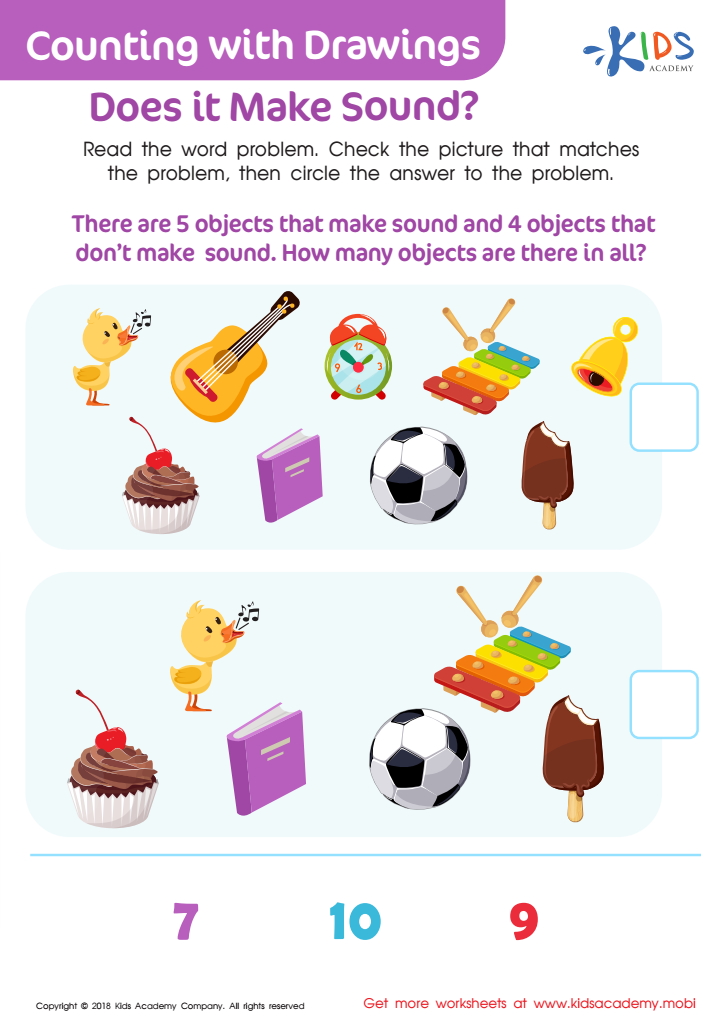

Counting With Drawings. Does It Make Sound? Worksheet
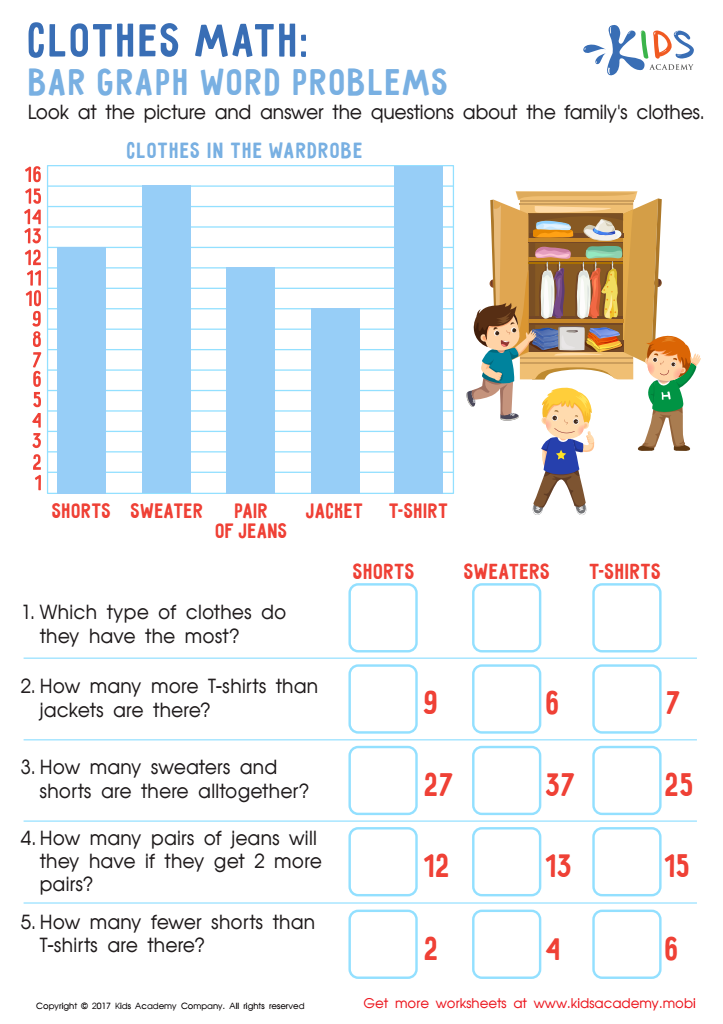

Clothes Math: Bar Graph Word Problems Worksheet


Tricky Problems Worksheet: Part 2


Tricky Problems Worksheet: Part 1


Solve the Problem: Trick–or–treating Worksheet
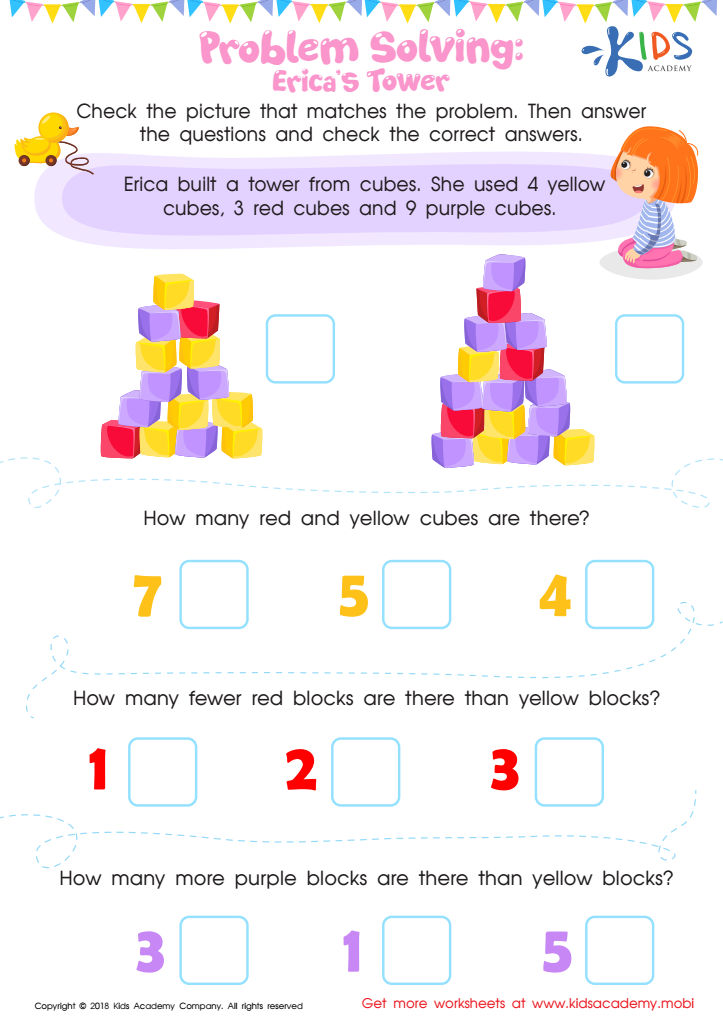

Problem Solving: Erica's Tower Worksheet
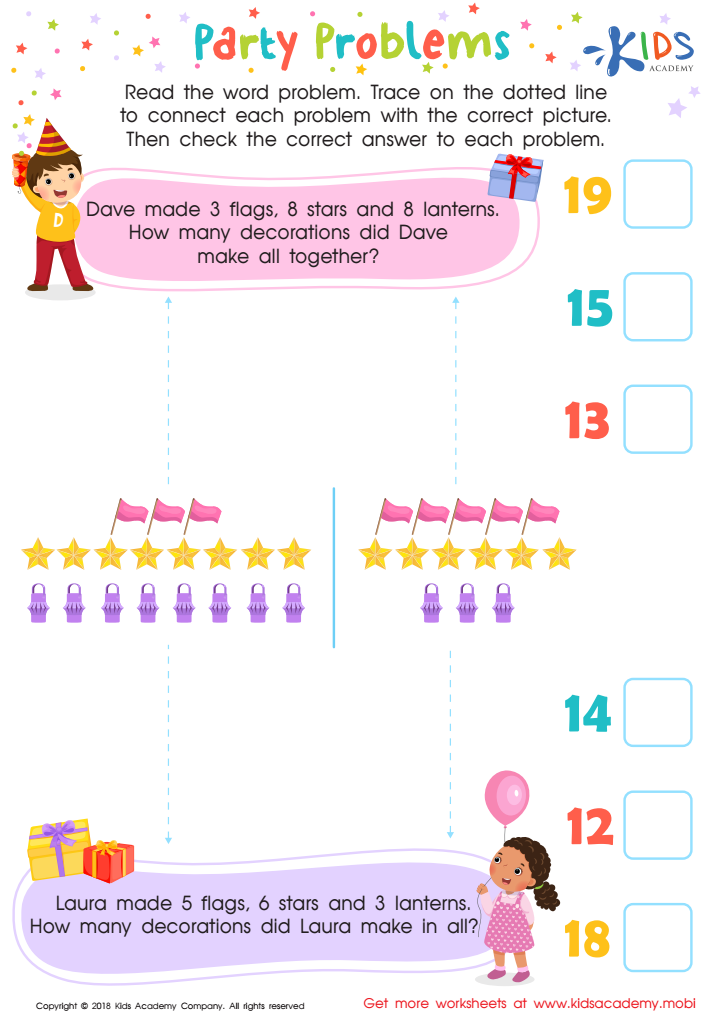

Party Problems Worksheet
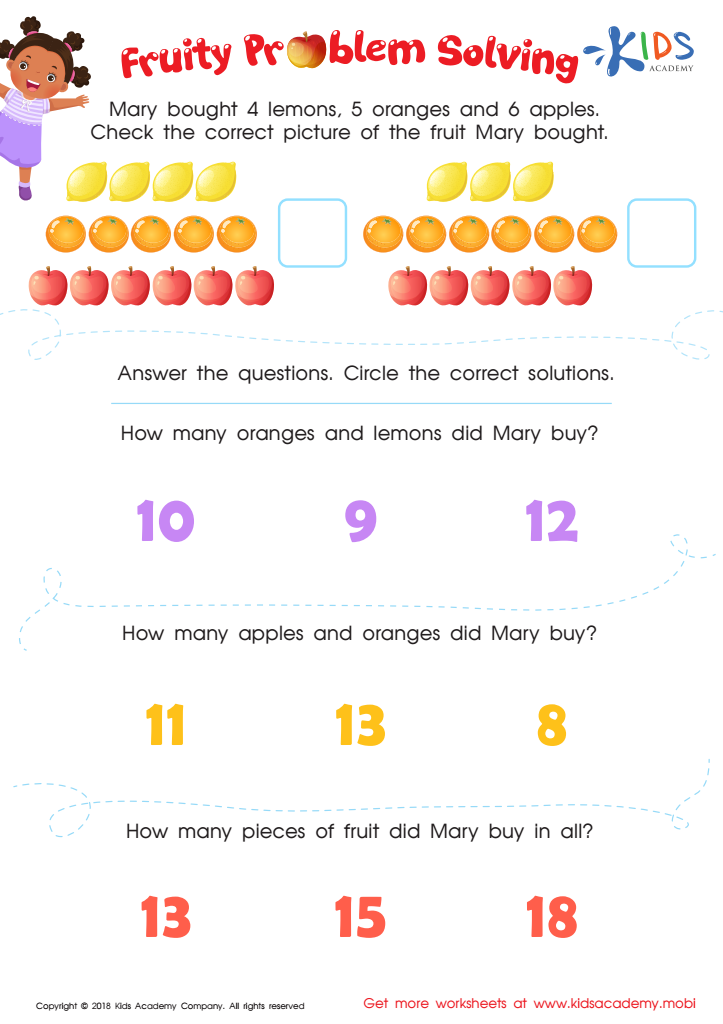

Fruity Problem Solving Worksheet
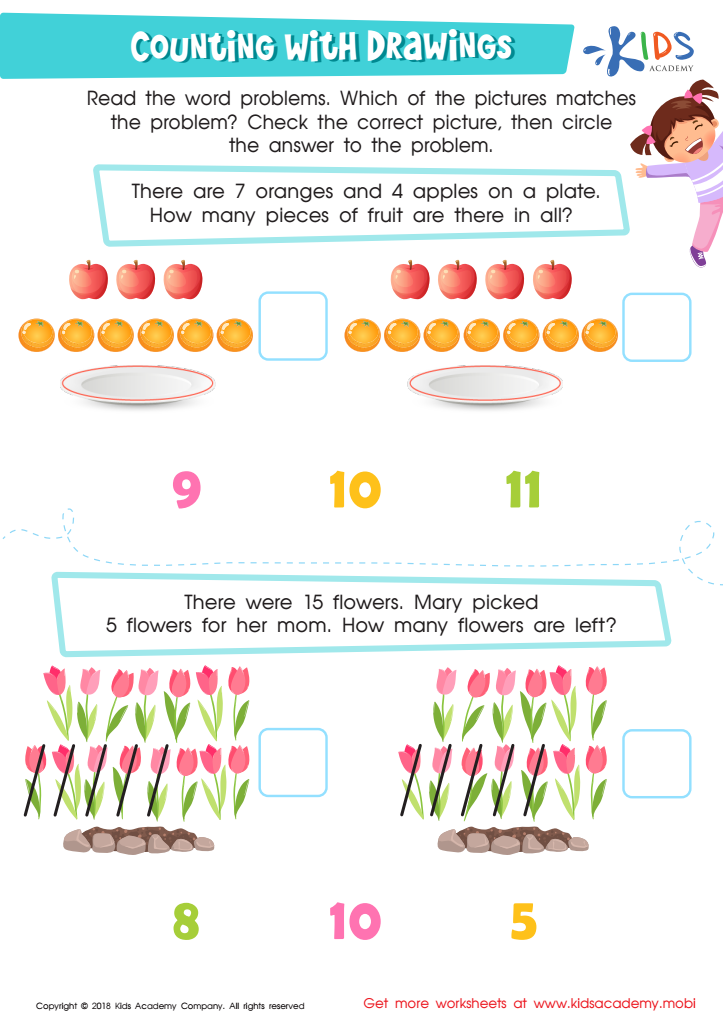

Counting with Drawings: Fruits & Chocolates Worksheet
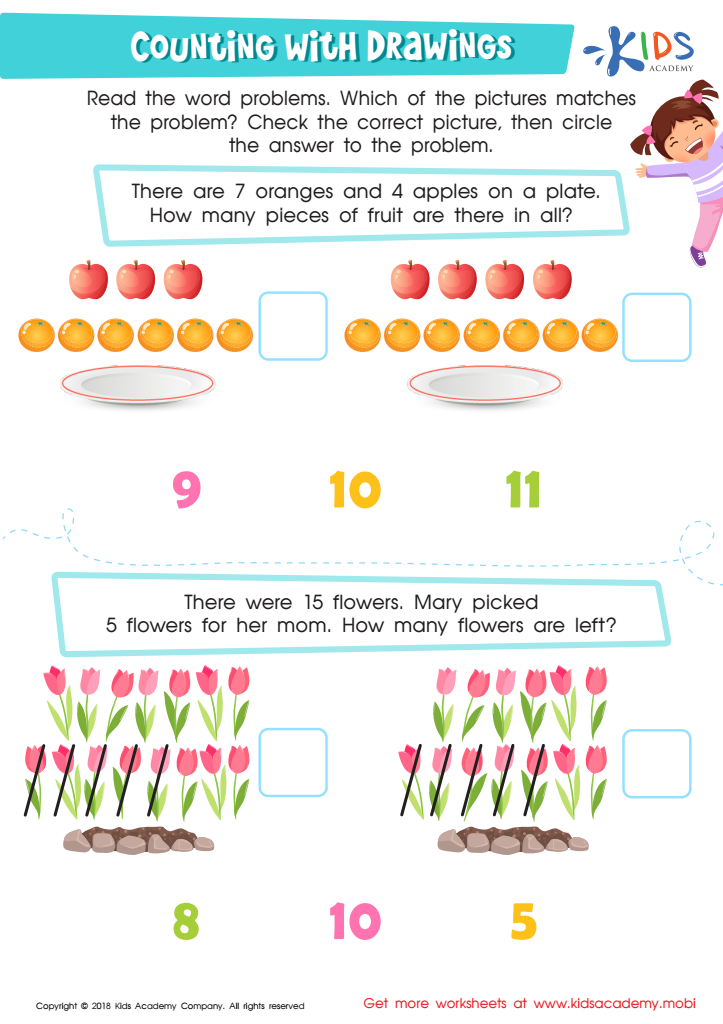

Counting with Drawings:Fruits & Flowers Worksheet
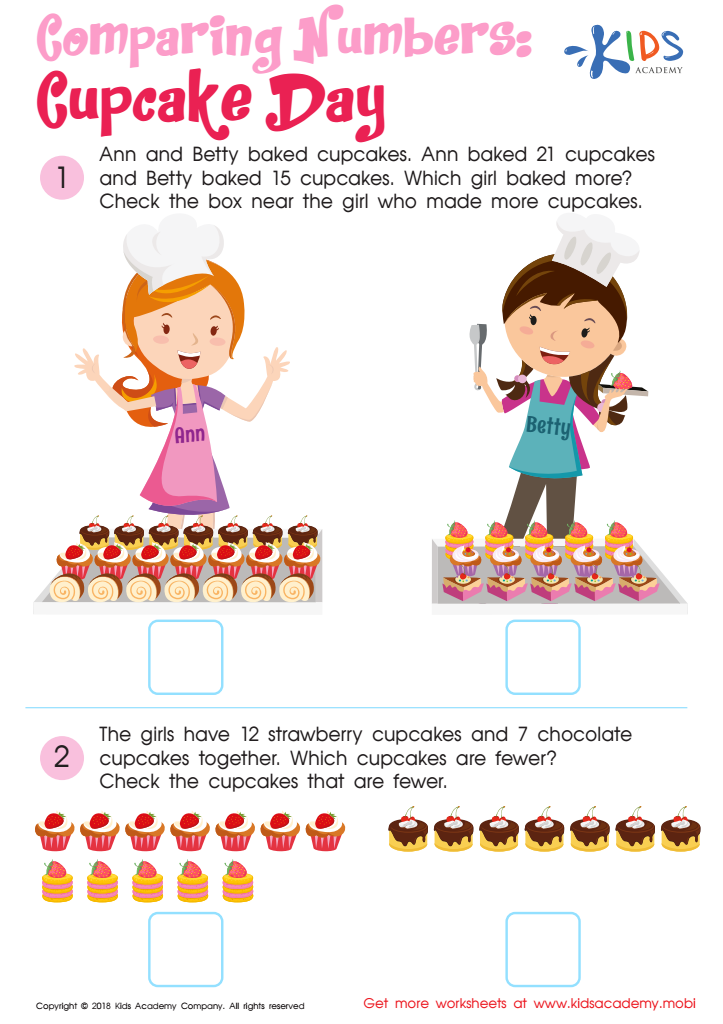

Cupcake Day Worksheet
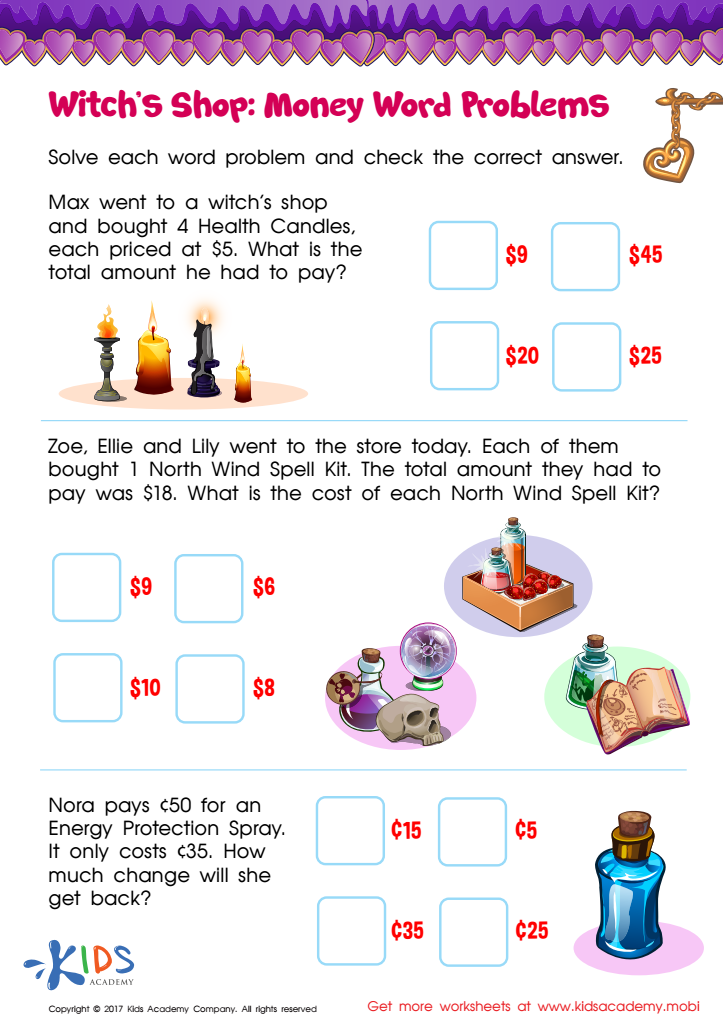

Money Word Problems Printable


Addition and Subtraction: Word Problems Worksheet
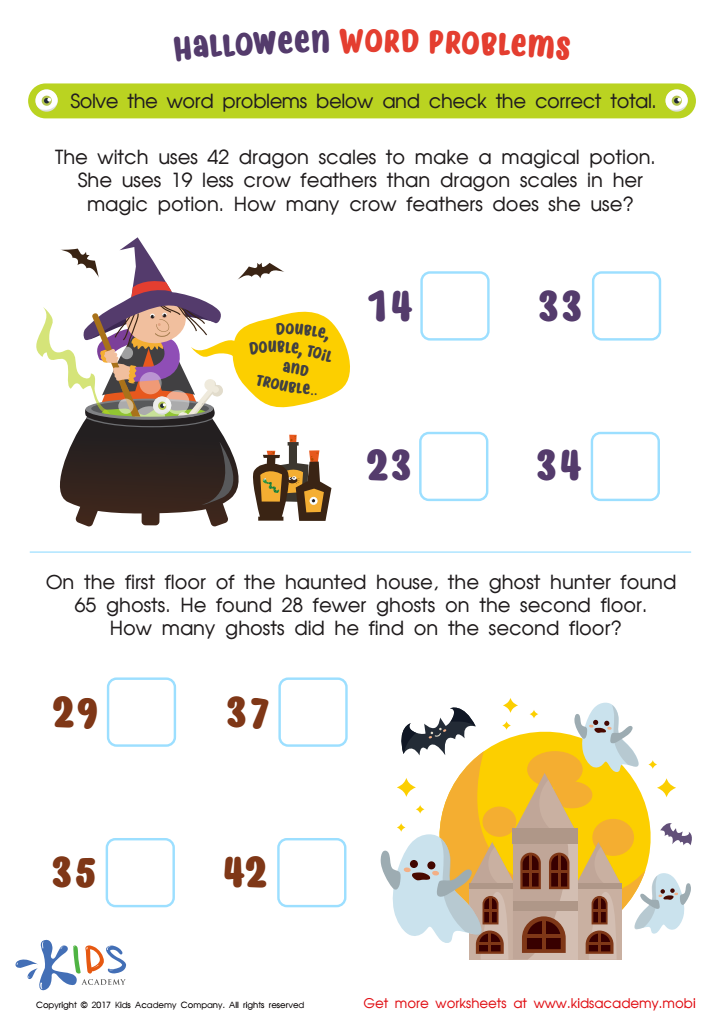

Halloween Word Problems Printable
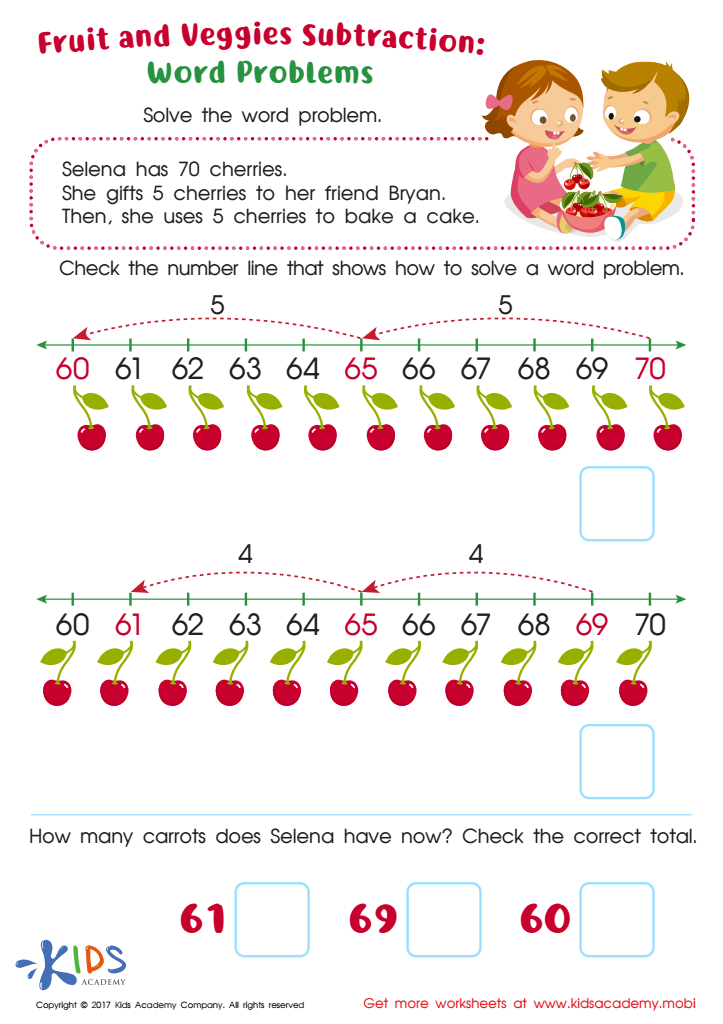

Subtraction Word Problems Free Printable
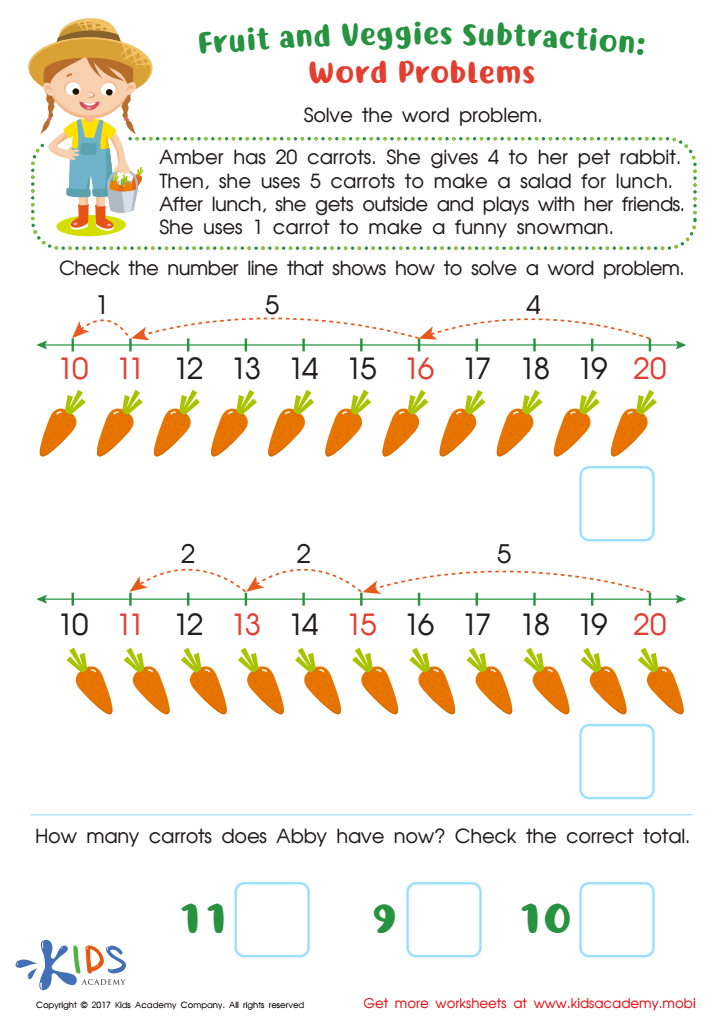

Subtraction Word Problems Printable
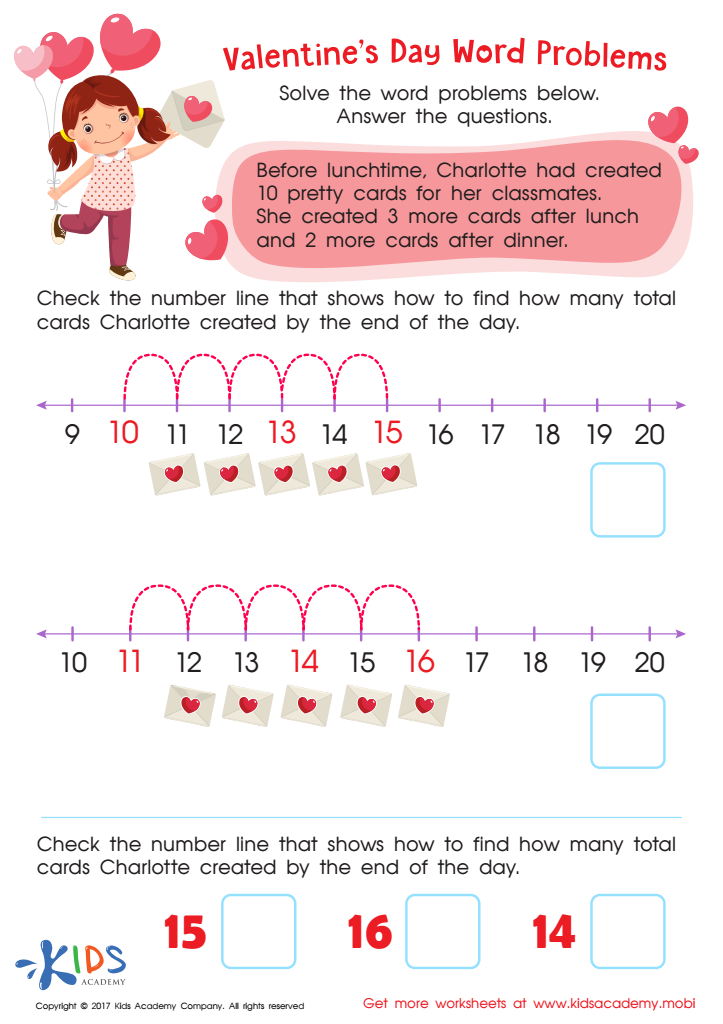

Valentines Day Word Problem Worksheet
Normal word problems are essential tools in early childhood education, specifically for children aged 3-7. They are not just simple math exercises; they foster critical thinking, literacy, and problem-solving skills that are vital for young learners. At this age, children are naturally curious, and engaging with word problems taps into their imagination, helping them make sense of the world around them.
Parents and teachers should care about normal word problems because they provide real-life context for mathematical concepts, making learning relevant and relatable. For instance, a word problem about sharing snacks among friends reinforces not only basic addition or subtraction but also important social skills like cooperation and fairness.
Moreover, word problems enhance language development as children must decode the language used to understand and solve them. This dual focus on math and literacy ensures a well-rounded educational experience. Engaging with these problems can bolster a child’s confidence in handling challenges, laying a strong foundation for future academic endeavors.
By incorporating normal word problems into learning, parents and teachers help cultivate a generation of critical thinkers who are proficient in both mathematics and communication, preparing them for lifelong success.
 Assign to My Students
Assign to My Students
















